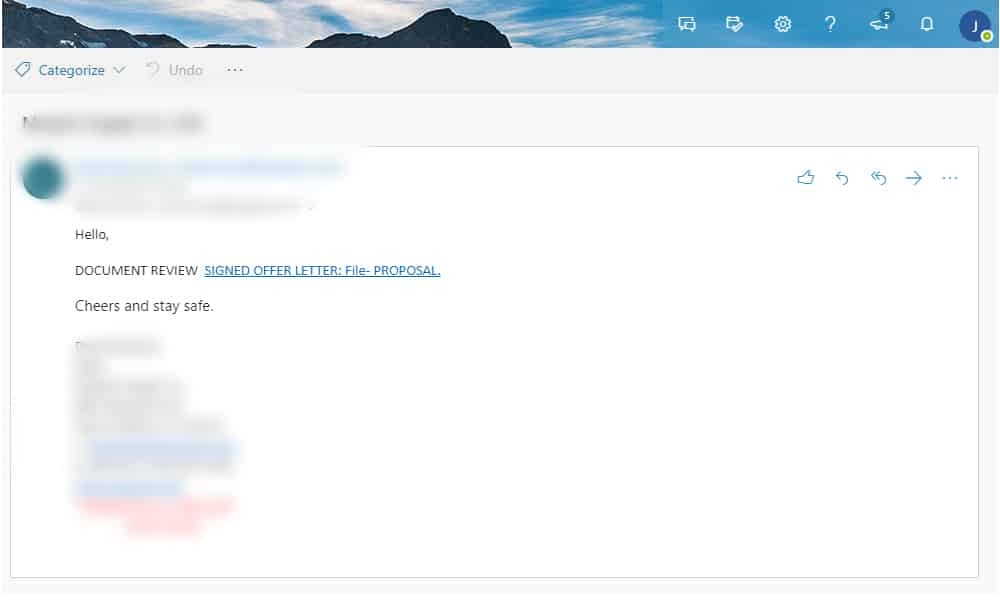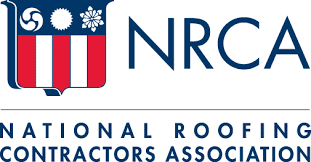The 2019 novel coronavirus is clearly putting our health at risk, but it’s also causing a flurry of new scams that puts our identities and wallets at risk. Scammers are taking advantage of the fear that COVID-19 has put into Americans by developing new ways to steal from innocent people. Our construction company in Connecticut is here to help. Let’s look at the different types of scams hackers are using and some Connecticut online safety tips during the coronavirus.
Hacking Email Accounts
This morning, our Connecticut roofing company office staff received an email from a material supplier we purchase materials from occasionally. The email contained a signature line like it typically would and was signed from a sales representative we work with. It was a very short email with a link to an attachment. As Connecticut roofers, we do a lot of roofing business with suppliers. However, we knew that we had no current orders from them so we didn’t click on the link that could have helped a hacker steal company information. Never click on links and attachments if they aren’t expected. If you are leery of an email you receive from someone, the best course of action is to call them to make sure they sent it.
Selling Items
Like we mentioned earlier, scammers are using the fear that the coronavirus is putting into citizens to get them to make a purchase. We’re seeing an influx of fake accounts selling respirator masks, gloves, and cleaning supplies hoping to get online payment only to never ship the items. We highly recommend you avoid sites like Craigslist, Letgo, Offer Up, and Facebook Marketplace for these purchases. Rely on reputable stores and online merchants for these purchases.
When you do make a purchase online, be careful to fact check who you’re dealing with. I recently had a friend purchase a video game system on Letgo from someone who claimed to own a pawn shop. My friend sent the person a Venmo payment for half of the cost only to find his item never shipped and the seller deleted their account. A better course of action would have been to meet the person in a public location or call the pawnshop directly prior to payment.
There is also a lot of people claiming to sell “corona cures” or preventative medicines online. Never fall for this trap. Although some of these substances could be legitimate, they likely are not approved by the FDA. Always consult your doctor prior to investing in any new supplement or medicine.
Stimulus Check Scams
The Federal Government recently approved a motion to send relief checks to Americans to help improve the economy during the coronavirus outbreak. This has caused a wide variety of different scams to surface in America and Connecticut. We’re seeing scammers soliciting citizens by email, phone, text, and in-person to gain their personal information. As of right now, we don’t know the details of the relief checks. There is no reason to respond to any of these solicitations until the government tells us the steps we may need to take to get checks.
Online Safety Tips During the Coronavirus
- Be wary of suspicious emails. Call the person directly if something doesn’t seem right.
- Avoid websites that you don’t seem legitimate. Rely on one of the top few Google listings to get you to a reputable website for what you want.
- Be smart about online purchases. Only buy through reputable websites and online sellers.
- At this time don’t buy any vaccinations, medications, or home testing kits for coronavirus. However, home testing kits may be available in the near future.
- Don’t comply to any stimulus check solicitation until we know more about the process.
- Be careful of information about COVID-19, the best information will be from the Center for Disease Control and World Health Organization websites.
- Fact-check disease information. Unfortunately, much of the information we read online (especially on social media) is false. Websites that end in .gov and .org or reputable news sites provide the best information.
- Hang up on and block robocalls and calls and texts that seem to be coming from scammers. Don’t provide them with any information and be sure to block the phone number.
It’s unfortunate that we must maneuver the internet in these ways, but it’s necessary to keep ourselves and families safe during this trying time. If you’re unsure of something you see or hear, the best thing you can do it play the situation safe by getting opinions on your concern. We’re all in this together, remember these Connecticut online safety tips during the coronavirus and let’s stay safe and help one another get through this! As always, if you have any questions for a Connecticut home builder or roofers near me, be sure to contact us.
PS: Our Eastern CT roofing company is offering free “no-contact” estimates during the COVID-19 pandemic. See this page for more details.





